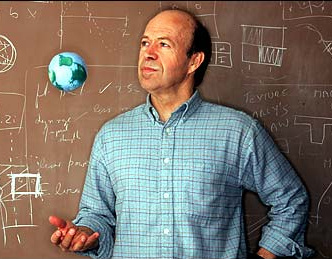'Father of Global Warming' to Speak at Wellesley College
Symposium on the Communication of Science Will Bring Together
Educators, Experts, Journalists and Students
FOR IMMEDIATE RELEASE:
March 29, 2010 |
|
WELLESLEY, Mass.— If global warming is a problem, then why has it been so cold this winter?
 |
Climatologist James Hansen will deliver the keynote address of the daylong "Communicating Science Symposium" at Wellesley. Through panels and workshops, participants will discuss the challenges of communicating scientific research to the media, politicians and the public. |
Despite year-to-year fluctuations in the weather, global warming has not slowed and 2010 may be the hottest year yet, says James Hansen, director of the NASA Goddard Institute for Space Studies.
Hansen, often dubbed the “father of global warming,” has fought for years to bring attention to this controversial issue. His 1988 congressional testimony, where he warned that the Earth had entered a long-term warming trend, helped raise awareness of climate change. His work has met with the denial of global warming by some, and other more natural challenges.
"Communicating the reality of climate change to the public is hampered by the large natural variability of weather and climate," he stated in a recent report.
Hansen will speak about challenges to communicating scientific issues, climate change and his activism Saturday, April 10, at 11:45 am in Jewett Auditorium on the Wellesley College campus. His lecture is the keynote event of the daylong “Communicating Science Symposium” at Wellesley. All events are free and open to the public.
Wellesley College President H. Kim Bottomly, a renowned immunobiologist, will give introductory remarks at 10 am in Science Center 277. Her talk will be followed by a panel at 10:30, featuring special guests Peter Thomson, founder of NPR’s environmental news program, “Living on Earth”; Richard Miller, president of Olin College; Dan Grossman, a print journalist and radio producer; and David Chandler, a science writer and environmental journalist.
The symposium, hosted by Wellesley Energy and Environmental Defense (WEED), aims to open a dialogue among disciplines on the communication of science. Through panels and workshops, participants will discuss the challenges of communicating scientific research to the media, politicians and the public.
“The solutions to many global environmental issues lie at the interface of research, legislation and public understanding,” said Wellesley College sophomore Ellen Willis-Norton. “We hope that this symposium will allow us to collaborate on ways in which to effectively communicate science in the future.”
Discussions will focus on climate change as one of the most controversial and urgent problems facing the world today, and speakers will share their expertise in scientific disciplines ranging from astrophysics to immunobiology.
For more information, a schedule of events and to register for the symposium, visit https://sites.google.com/site/wellesleycommsci/ . Registration is not required to attend the keynote address by Hansen.
Since 1875, Wellesley College has been a leader in providing an excellent liberal arts education for women who will make a difference in the world. Its 500-acre campus near Boston is home to 2,300 undergraduate students from all 50 states and 75 countries.
###
|

